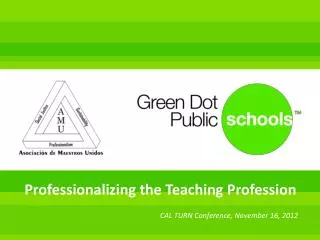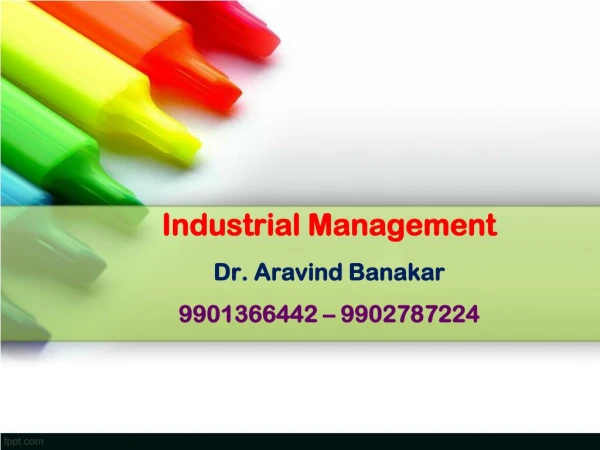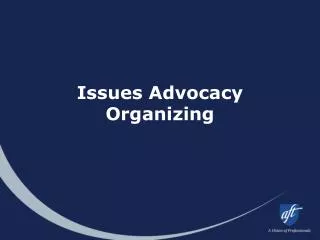Chinese enterprises are essentially passive players at the sharp end of CSR in China
Assignment Solutions, Case study Answer sheets Project Report and Thesis contact aravind.banakar@gmail.com www.mbacasestudyanswers.com ARAVIND – 09901366442 – 09902787224 INDUSTRIAL MANAGEMENT (Marks 80) CASE 1 : (30 Marks) Trade Unions in the TNC Supply Chain and their relationship with the CSR Movement Chinese enterprises are essentially passive players at the sharp end of CSR in China. They are in a position of having to juggle between the different factors governing the development of industrial relations in China, including trade union reform. In this often tense dynamic, CSR is seen as an external factor and trade unions an internal factor. These two factors have an impact on each other. As part of the research for this case study, the research team (RT) ‘shadowed’ a CSR audit. The factory had come under very heavy CSR pressure in 2004. Altogether, the RT carried out two investigations: in March (see earlier printed report) and August 2006 Initial conclusions: 1) That factories undergoing CSR audits have better working conditions than those that don’t. 2) There is no evidence to suggest that trade unions have an impact on wage levels at enterprise level. However, factories subject to CSR pressure are generally large workplaces and this was perhaps a factor in improving labour conditions. Moreover, CSR-targeted factories are prone to data distortion due to ‘training of workers’ answers’ in interview and double or even triple accounting. Enterprise Y was established in 1997 and now has 1,200 workers. It was ‘Re-registered’ in 2002 to take advantage of tax breaks etc. It manufactures electronic goods for export chiefly to three retailers and over 50% of goods go to a single US company. Employment breakdown: 80 managers, 300 skilled workers; remainder are ordinary workers. Managers and skilled workers have contracts and social insurance based on minimum legal standards. The extent of contracts among unskilled workers remains unclear. The enterprise had previously AN ISO 9001 : 2008 CERTIFIED INTERNATIONAL B-SCHOOL supplied a ‘comprehensive’ contract and social insurance list to CSR audit team (excluding probationary workers) but the RT’s interviews with workers revealed that many had no idea if they had a contract or not or if they were paying into various social insurance schemes such as work injury or pensions. The RT was not given access to formal SI contribution records. Wages were verified at between 900-1100 yuan per month with on average more than 60 hours o/t but this was subject to orders. There were few disputes and conditions generally were better than at surrounding factories. Up until Aug 2006 accommodation was free and reasonably good. The labour turnover rate for unskilled workers was just 8% and most workers had been there more than two years already. However, in the same period the labour turnover rate for skilled workers had increased dramatically. Enterprise Trade Union Established in 2004. Trade union chair M directly elected by workers, largely as a result of pressure from the Brand. By August the follow-up research revealed M had left, apparently for ‘personal reasons’ according to management. Former vice chair C had taken over his position. C’s previous experience had been as a member of a trade union committee in an SOE trade union. He was appointed to the post at Y. The local township union said that there would be fresh union elections ‘soon’. The trade union at Y had three other union committee members. All were mid or senior level managers: human resources manager, one an engineer, and a finance manager. The union had an office in the enterprise but has no bank account or independent accounts/expenses system. All union activities were entirely dependent on management transferral of funds. Trade Union Work Approach to union work very similar to work in SOEs – i.e. very traditional. Also the union works very closely with the township union and pretty much depends on it for policy etc. The latter is very pleased with the Y union, which has received a number of awards. Activities include labour productivity competitions, May Day competitions. Prizes include going on holiday to HK. Examples of general day union work included: • Management introduced a charge for canteen food. The service had been franchised to outside contractors. In response the union organised a small group (xiao zu) which negotiated with the company and succeeded in getting the food and food hygiene situation improved. • Dormitory Management Team: made up of company reps and worker reps. Aim was to selfmanage the dormitories and avoid management imposing arbitrary fines on workers. The committee’s work was based on a ‘Dormitory Management Contract’ which the union drew up. Any fines imposed had to be in accordance with the contract and workers reported an improvement in the overall dormitory conditions. Union representing workers in wage consultations The union was very proud of this aspect of its work. Wages stipulated in contracts were 574 yuan per month – however the real income of workers varied between 900 and 1100 per month due to o/t. On 1 September 2006 – the government introduced new standards for min. wage which were reset at 690 yuan per month, which at current contract and o/t levels in the factory would mean a 300 yuan per month wage increase. Company provided figures which made it clear that if they abided by the wage increase in current market conditions they would go bust. Y’s HR department presented a proposal saying that Y should meet new min. wage requirements but cancel food and board subsidy. However, this would break contracts with workers in which the company agreed to supply food and dormitory accommodation. Management consulted with local government and township trade union and decided to try and solve the problem through consultations with enterprise union. RT investigation found that the consultation did not follow either the regulations on collective consultations on wages, nor did they constitute a collective contract. Instead: Workers Rep meeting called by boss: mostly production managers but also a small number of line workers present who were appointed as ‘reps’ by the trade union chair. RT observed this meeting and also provided legal advice to worker reps. At the meeting was a deputy managing director and the two managers from the union committee. Meeting procedures and presentations recorded in report – worker reps presented with an ultimatum regarding bankruptcy plus threat of dismissal from HR dep. for anyone who did not agree with the cancellation of free food and board. Trade union said: it wanted the new min. wage standard met; new charges for food and board should be reasonable and include a self management team for dormitory. Union also called for further consultation with members. Not much feedback from members. Union held further talks with senior company managers. This led to the Method of New wage Management. New charges 200 for dorm and 60 for food, a rate below market prices but reduced the wage rise itself to between 40-60 yuan. RT interviews with workers showed that most workers agreed with the new arrangements. A minority felt that they had been cheated. All signed the new agreement and anyone who refused was told their contracts would not be renewed. CSR audit RT shadowed and at times provided translation for a social audit team. Despite the professionalism of the audit team, their task to report actual conditions at the factory was essentially a failure. The audit team asked that the factory management bring o/t levels down to legal levels, although they also expressed an understanding of local conditions and stated that workers were able to take adequate rest time despite high levels of overtime. No workers expressed dissatisfaction with pay and conditions directly to audit team. The audit team also had an extensive meeting with trade union chair who told them that the new wage levels had been met but did not mention the introduction of dormitory and canteen charges. The audit team also asked that a dispute mediation committee be established at factory level as well as warning management that a complaints system for workers should be implemented as soon as possible. Also discussions over whether the deposit that the factory demanded for work uniform was an illegal job deposit. Audit team agreed that it wasn’t. Audit team did not discover the fact that some workers who did not meet piece rate targets had to complete quotas in their own time – up to 1-2 hours per day! The trade union chair had told workers it was in their interests to lie to audit team over working hours as trained to do so by enterprise management. He was under no pressure to take this line from the enterprise itself. Discussion: • Organisation of the trade union was from CSR pressure not pressure from workers i.e. in effect top down. 2004 US client retailer had cancelled an order due to working conditions and this had caused losses. • Union operated in a cooperative manner with management not confrontational. • With regard to a workers’ complaints and mediation system. The US client did not believe it to be true when management had told them there were no disputes with or among the workers. The real situation was that the union had not taken part in any disputes. RT checked with the MOLSS and found that a dispute had occurred following a death in the dormitory. Management denied it was due to a work injury and police ruled out criminal behaviour. Eventually MOLSS brokered compensation with family and Y enterprise. No details made available. However, RT concluded from this dispute that the company did not have an injury compensation scheme for workers. If they did have, the settlement would have been between the dead worker’s family and the insurance company. • Audit ream did not discover that the HR department pressured workers to hand in their notice when they wanted to cut staff levels rather than simply lay them off. This was to avoid compensation. The union also kept silent on this. • The wage negotiation process was entirely non-confrontational except for HR attitude to the workers, who were threatened with dismissal if they objected to concluding the agreement. • The union helped the enterprise and the brand find an easy way out of the wage dilemma. It did not ‘represent’ the workers in this process. Questions : 1. What is the experience of China about Trade Union in the above mentioned case? 2. How Trade Union resolved the dispute? By confrontation or by negotiations? 3. What is the general impression about the Trade Union movement with reference to this case? 4. Give your comments and opinion Assignment Solutions, Case study Answer sheets Project Report and Thesis contact aravind.banakar@gmail.com www.mbacasestudyanswers.com ARAVIND – 09901366442 – 09902787224
★
★
★
★
★
75 views • 7 slides

